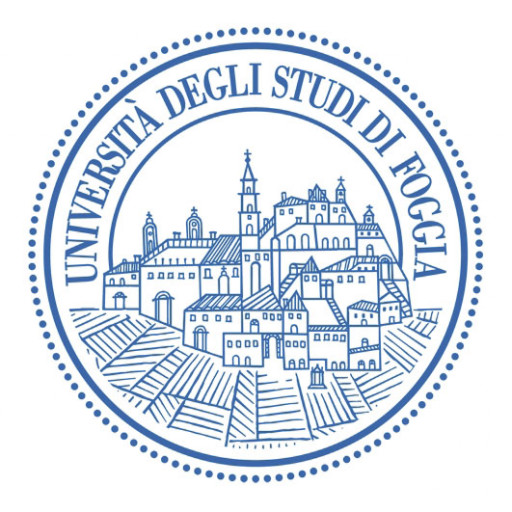Photos of university / #unifreiburg
An enduring and sustainable supply of energy is the issue of the future. The finiteness of fossil fuel reserves and the problem of climate change resulting from increasing emissions call for the development and implementation of new and sustainable energy solutions. Renewable energy systems satisfy the requirement for an ecologically compatible and enduring energy supply. They constitute the market of the future. With their decentralised approach, renewable energy systems give structurally weak regions access to energy, and thus provide fundamental support in the struggle against poverty in developing countries.
The interdisciplinary MSc Renewable Energy Engineering and Management programme with its explicit international focus is the only one of its type in the world. It is designed to close the strategic gap between the technical aspects of renewable energy and the vision of sustainable development. Therefore, it is not composed deductively from existing university structures and study programmes, but inductively from analysis of the potential international employment market and the qualifications it requires.
Our aim is to provide international students with context-sensitive, first-class training in the field of Renewable Energy Engineering and Management. Providing pivotal management skills for practical business purposes, the REM programme offers application-oriented specialisations in three different fields of renewable energy:
1. Energy Systems Technology (e.g. energy systems hardware, energy informatics, smart grids, energy efficiency)
2. Energy Conversion (e.g. photovoltaics, solar thermal energy)
3. Environmental Planning and Management (e.g. decentralised energy systems, landscape and nature protection, landuse conflict, bioenergy, management)
Coursework will focus on:
The interdisciplinary MSc Renewable Energy Engineering and Management programme with its explicit international focus is the only one of its type in the world. It is designed to close the strategic gap between the technical aspects of renewable energy and the vision of sustainable development. Therefore, it is not composed deductively from existing university structures and study programmes, but inductively from analysis of the potential international employment market and the qualifications it requires.
Our aim is to provide international students with context-sensitive, first-class training in the field of Renewable Energy Engineering and Management. Providing pivotal management skills for practical business purposes, the REM programme offers application-oriented specialisations in three different fields of renewable energy:
1. Energy Systems Technology (e.g. energy systems hardware, energy informatics, smart grids, energy efficiency)
2. Energy Conversion (e.g. photovoltaics, solar thermal energy)
3. Environmental Planning and Management (e.g. decentralised energy systems, landscape and nature protection, landuse conflict, bioenergy, management)
Coursework will focus on:
- Technological principles
- Climate and energy policy
- Environmental economics and environmental management
- Principles of the social, behavioural and legal sciences
- Ethics
Educational organisation
The Renewable Energy Engineering and Management coursework is very concentrated and is taught mostly in three-week modules. Students will not have to attend conventional lectures given by one tutor. They will instead be taught by teams of lecturers recruited from departments of different faculties, from external research institutions and from the private sector.Structuring the curriculum into modules offers the possibility for concentrated work and the integration of a range of teaching and learning techniques (role play, papers, team work in small groups).
First semester
1. Energy and Sustainable Development
2. Scientific Framework for REM: Politics, Economics, Business, Law or Physics, Chemistry, Biology, Engineering
3. Natural Resources and Conversion Technologies
4. Climate and Energy
Second semester
1. Generation & Distribution of Energy
2. Management (Part I)
3. Research Skills
4. Society and Economy
5. Elective Wind Energy or Elective Bioenergy
6. Internship
Third semester
1. Elective Track "Energy Systems Technology" or
2. Elective Track "Energy Conversion" or
3. Elective Track "Environmental Planning and Management"
4. Internship
5. Project
Fourth semester
Master's thesis
Study abroad unit(s)
Students are encouraged to conduct their compulsory internship (between the second and the third semester) abroad. The department offers assistance in finding a placement.Internships
Compulsory internship between the second and the third semesterForms of assessment
Depending on the type of course and the learning goals of a module: written and oral exams, assignments, presentations and/or reportsCourse objectives
Our aim is to provide international students with context-sensitive, first-class training in the field of Renewable Energy Engineering and Management. Graduates will have the ability to plan projects and facilities for the utilisation of renewable energy and to implement them while taking account of economic, political and societal concerns.See our website for more information about the courses (http://www.rem.uni-freiburg.de).
Language requirements
Proof of proficiency in English (if not your native language):- TOEFL paper-based 600 points, computer-based 250 points or Internet-based 100 points (should not be older than two years) or
- IELTS band 7
Academic requirements
Above-average qualification (BSc or German "Diplom") in engineering, natural sciences, or applied life sciencesThe admission commission will decide on the equivalence of other degrees in individual cases.
Application documents:
1. completed application form of the Faculty of Environment and Natural Resources
2. certified copy and a certified translation (if not German or English) of each achieved degree
3. two letters of reference from university officials, professors or employment supervisors (plus evaluation form "Referee's Questionnaire")
4. official transcript of records
5. test results (TOEFL or IELTS) if English is not your native language
6. letter of motivation (one to two pages in German or English)
7. curriculum vitae (two to three pages in German or English)
Enrolment fees
Approx. 150 EUR per semesterCosts of living
Participants must make sure in good time that sufficient funds are available to finance their participation in a course of study. The average cost of living in Freiburg for one month is currently approx. 800-900 EUR. Some details:- Student accommodation costs approx. 280-450 EUR (monthly).
- Private expenses amount to around 350 EUR (monthly).
- Health insurance is available for approx. 45-90 EUR (monthly).
- Transport: A special student fare for regional transport costs approx. 89 EUR (per semester).










